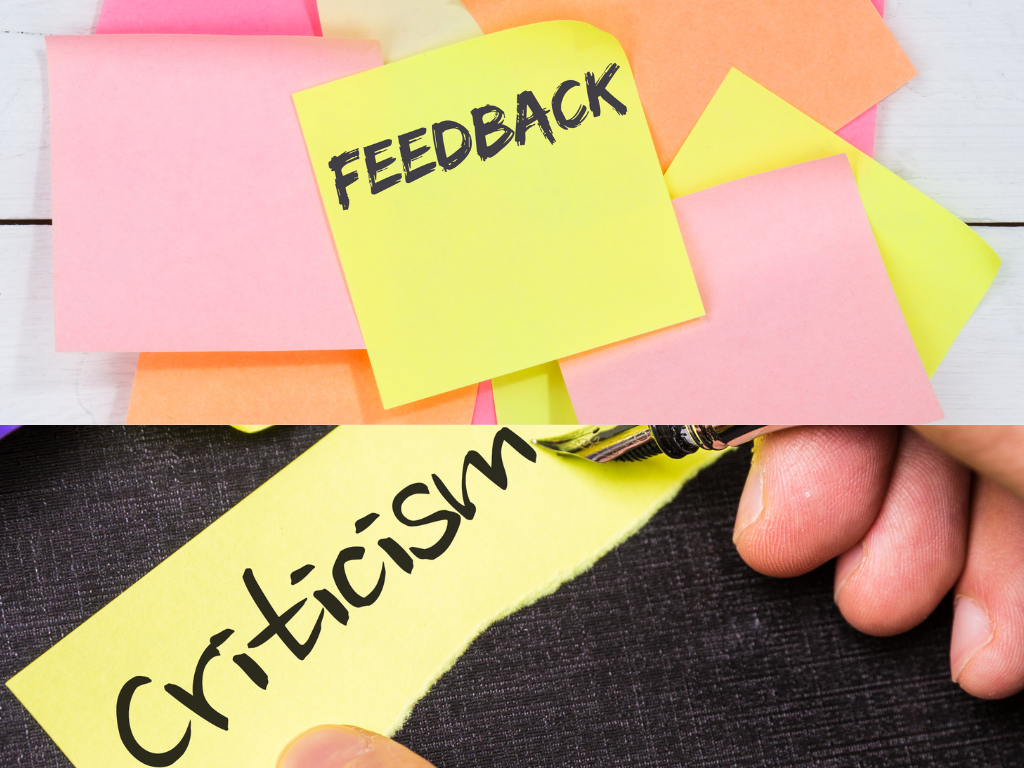Why Feedback Feels Like Criticism to Anxious Perfectionists (And How to Handle It)
Have you ever received feedback at work or in your personal life, only to feel an overwhelming rush of anxiety? Your heart races, your stomach tightens, and suddenly, all you can focus on is what you could have done wrong. Even if the feedback is balanced or positive, your mind quickly zooms in on the areas for improvement, leaving you feeling like a failure.
If this sounds familiar, you’re not alone. As a therapist specializing in helping women overcome perfectionism and anxiety, I see this all the time. For many women, feedback—no matter how well-intentioned—feels like criticism. It triggers feelings of inadequacy and self-doubt, especially when they’re already holding themselves to impossibly high standards.
In this article, we’ll explore why feedback can feel like personal criticism for women dealing with perfectionism and anxiety. We’ll also dive into how these emotions can fuel a spiraling reaction and, most importantly, how to shift your mindset to turn feedback into an empowering tool for growth.
Feedback vs. Criticism: Understanding the Key Difference
One of the most challenging aspects of overcoming perfectionism and anxiety is learning how to navigate the emotional impact of feedback. Whether it's at work, in relationships, or during personal growth, feedback can feel like a personal judgment. However, it’s crucial to distinguish between feedback and criticism, as they are not the same thing.
What is Feedback?
Feedback is information provided to help us improve, develop, and grow. It's aimed at offering insights into what we’re doing well and where we could do better. Crucially, feedback is meant to be constructive—it serves as a tool to guide you in your journey of self-improvement.
Characteristics of Feedback:
Constructive: It offers suggestions for improvement or acknowledges areas where you can grow.
Actionable: Feedback provides clear, actionable steps to help you improve and develop.
Neutral: It’s not an attack on you as a person but rather a response to your actions or performance.
Supportive: Good feedback motivates you to continue growing and offers a path forward.
Specific: It focuses on particular behaviors or outcomes rather than making vague or generalized statements.
For example, if a colleague offers feedback on a project, they might say, “You did a great job organizing the data, but it could have been more visually appealing with clearer charts.” This is feedback because it’s specific, constructive, and geared toward helping you improve your presentation.
What is Criticism?
Criticism, on the other hand, tends to be more judgmental and focuses primarily on what went wrong. It often lacks guidance on how to improve and can feel harsh, impersonal, or even dismissive. While feedback is designed to foster growth, criticism can leave us feeling discouraged, defeated, and unsure of how to move forward.
Characteristics of Criticism:
Negative Focus: It centers on what you did wrong or failed to do, often without offering solutions.
Vague or General: Criticism is typically broad and unspecific, making it difficult to know how to improve.
Judgmental: It often targets you as a person, not just your actions or performance.
Demoralizing: It can make you feel small, inadequate, or less capable without giving you the tools to grow.
Unclear: Instead of offering clear direction, criticism can feel like a harsh assessment of your abilities without any helpful guidance.
An example of criticism might be a comment like, “You’re always disorganized, and this project was a mess.” This is criticism because it focuses on personal judgment without offering a way to improve or specific steps for development.
Why Feedback Feels Like Criticism to Anxious Perfectionists
Feedback is meant to help us grow. It highlights areas of strength and suggests where we can improve. Ideally, it’s constructive and supportive. However, for someone who struggles with perfectionism and anxiety, even the most well-meaning feedback can quickly feel like harsh criticism.
Perfectionists hold themselves to incredibly high standards, and any imperfection, no matter how small, can trigger a deep sense of failure. This means that when feedback is given, it’s easy to misinterpret it as a judgment of our abilities or worth. Even the suggestion of improvement can feel like a personal attack.
Anxious perfectionists are often caught in a cycle of overthinking and catastrophizing. They tend to imagine the worst-case scenario: If something isn’t perfect, it must be bad. If they didn’t meet every expectation, it could lead to dire consequences, like disappointing others or losing opportunities.
The Role of Anxiety in How Feedback is Perceived
Anxiety is a natural response to perceived threats. In situations involving feedback, it can trigger a “fight or flight” reaction. Your brain interprets the feedback as a threat to your self-image, and your body responds with stress. This is why the feedback, rather than feeling like a constructive tool, can feel like a direct attack on your worth.
For someone dealing with anxiety, overthinking can take over. Every word of feedback is scrutinized, replayed over and over in your mind. You may find yourself trapped in a spiral of negative self-talk, telling yourself you’re not good enough, or worse, that you’re a failure. Anxiety fuels this internal narrative, amplifying the emotional impact of feedback and turning it into a source of shame and self-criticism.
Why Perfectionists Struggle with Feedback
The Desire for Perfection: At the core of perfectionism is the belief that anything less than flawless is unacceptable. When feedback includes suggestions for improvement, it can feel like a glaring reminder that you’re not perfect—something many perfectionists find hard to handle.
Fear of Disappointing Others: For anxious perfectionists, feedback often feels like a reflection of how others perceive them. The fear of disappointing people—whether a boss, colleague, or loved one—can make even the smallest critique feel like a judgment of your entire worth.
The Inner Critic: One of the most damaging aspects of perfectionism is the inner critic—the harsh, negative voice that constantly tells you that you’re not good enough. This voice amplifies the impact of feedback, turning even neutral or constructive comments into personal attacks.
How Perfectionism and Anxiety Feed into the Emotional Spiral
When perfectionists receive feedback, they often fall into an emotional spiral. Anxiety and perfectionism are intertwined—both are driven by a fear of failure, fear of judgment, and fear of not measuring up. Feedback, no matter how constructive, can feel like confirmation that something went terribly wrong. Your brain starts imagining worst-case scenarios: what if this leads to a loss of trust? What if you never meet expectations again? These thoughts are all fueled by anxiety, which magnifies the emotional weight of the feedback.
This spiral can lead to counterproductive behaviors like overworking in an attempt to “make up” for perceived mistakes or even procrastinating due to fear of making another error. The key here is recognizing that anxiety often distorts reality, causing you to believe that mistakes are catastrophic. But mistakes are simply part of the learning process—no one is immune to them.
Reframing Feedback as a Tool for Growth
Shift your perspective: One of the most effective ways to manage feedback is to reframe how you view it. Instead of seeing it as a reflection of your inadequacies, try to view feedback as an opportunity for growth. Growth doesn’t happen without bumps in the road—and feedback is simply one way to highlight areas for improvement.
Normalize feedback: It’s important to remember that feedback is a normal part of life. It’s not a reflection of your worth but a tool that helps you become better, both personally and professionally. Everyone receives feedback, and it’s a key part of growing as a person.
Separate your identity from your performance: Feedback does not define you. Your value is not tied to your ability to be perfect or successful. When you can separate your self-worth from your performance, feedback becomes less threatening. You can take it in stride and use it as a tool to build resilience and confidence.
Focus on the message, not the delivery: Sometimes feedback can feel harsh, especially if it’s not delivered in the most compassionate way. However, focusing on the message itself can help you see the constructive elements, even if the delivery wasn’t ideal. This allows you to extract valuable insights without getting bogged down by the emotional response.
Practical Tools to Manage Feedback
Pause and Breathe: Before reacting to feedback, take a deep breath. Give yourself a moment to process the information calmly. This can prevent an immediate emotional reaction and give you the space to respond thoughtfully.
Ask for Clarity: If feedback feels unclear or too harsh, ask for clarification. Understanding the intent behind the feedback can help you reframe it in a more constructive way.
Keep a Feedback Journal: Consider tracking feedback in a journal. Writing it down can help you reflect on the positive aspects and plan for improvement. By shifting the focus from fear to growth, you begin to see feedback as a tool to help you move forward.
Practice Self-Compassion: It’s essential to treat yourself with kindness when you make mistakes. Remember, nobody is perfect, and mistakes don’t define your worth. Practice self-compassion by acknowledging your imperfections as part of being human.
Building Confidence Over Time
Learning to embrace feedback as a growth opportunity is a gradual process. At first, it may feel uncomfortable and challenging. But with time and practice, you can build the confidence to view feedback as a tool for growth, not a reflection of your inadequacies.
Remember, it’s okay not to love feedback right away. But each time you choose to face feedback with an open mind, you’re strengthening your confidence and resilience. Celebrate your progress along the way, no matter how small.
Embracing Feedback and Releasing the Fear of Criticism
Perfectionism and anxiety can make feedback feel like a personal attack, but with awareness and practice, you can learn to reframe it as a tool for growth. Embrace feedback as an opportunity to learn and improve—not as a judgment of your worth.
You deserve to live a life that’s truly yours—one that reflects your authentic self, not the unrealistic expectations of others. If you’re struggling with these patterns of perfectionism and anxiety, know that you’re not alone. Take the first step today and begin your journey toward reclaiming your balance, confidence, and peace of mind.
As a Licensed Professional Counselor in Texas specializing in helping women overcome perfectionism, anxiety, and people-pleasing, I’m here to help you build stronger boundaries, healthier relationships, and a greater sense of self-worth.
Schedule a consultation with me
Learn more about me and my therapy services for the anxious perfectionist.
Start your healing journey and begin living a life that’s truly yours.





